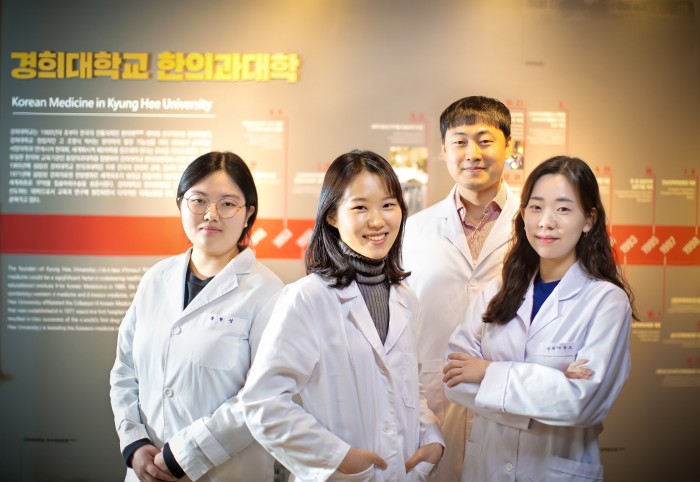
The research results of the research team of professor Kim Bong-i of the College of Oriental Medicine at Kyunghee University summarized the herbal medicines that were effective in the treatment of’Type 2 Diabetes’ as a thesis under the title of’Plant Extracts for Type 2 Diabetes: From Traditional Medicine to Modern Drug Discovery’. It was published on January 9 in the journal’Antioxidatns’ (impact index: 5.014), an international academic journal, drawing attention.
Existing diabetes treatments are accompanied by side effects such as gastrointestinal disorders, heart failure, hypoglycemia, and pancreatitis, and it is important to prevent side effects and complications of drugs due to the nature of diabetes that follows life after onset. As an alternative to this, the possibility of oriental medicine treatment has been suggested, and various herbal medicines are being studied.
In this study, which is composed of students in the first and fourth grades of the main department, Seung-Jin Noh (Class 16) and Jin-Joo Lee (Class 14) are the first authors, and is attracting attention as the research participation of undergraduate students. This is a summary of the oriental medicine treatment method for type 2 diabetes, which is a disease.
Because type 2 diabetes is closely related not only to heredity, but also to incorrect eating habits and lifestyles, it is conceived that oriental medicine treatment can be used. 65 studies on type 2 diabetes in the past 5 years were reviewed and analyzed to be effective in the treatment of diabetes. As a result of grasping the herbal medicine and its mechanism, it was found that the herbal medicine affects lipid metabolism such as △glucose metabolism, △inflammation and oxidative stress, △cholesterol, which is the cause of type 2 diabetes.
The research team classified herbal medicines according to the type of study by dividing them into three experimental models: cell experiments, animal experiments, and clinical tests.
First of all, in the results of a total of 12 cell experiments, 7 herbal medicines showed an effect in controlling glucose transport and metabolism. In particular, it was confirmed that senna leaf and rosemary increased the glucose transporter type 4 (GLUT4). And Hwangchil trees were confirmed to have shown a reaction to remove inflammation.
In addition, the efficacy of herbal medicines against type 2 diabetes was proven in animal experiments. When an herbal medicine was injected into the mice used as an experimental model, the symptoms of type 2 diabetes were significantly changed. Among the experimental mice, Lich (Litchi chinensis), mentioned more than once in 19 studies on’SD rats’, was confirmed to have controlled diabetes complications by affecting glucose and lipid metabolism. Deodeok and Yeoju were found to have an effect on all three causes of diabetes. There were 13 studies on rats called’Wistar mice’, of which acai berry was also found to have an effect on all three mechanisms, as well as effects such as lowering blood sugar in animal experiments.
In addition, the clinical trial study confirmed the efficacy of two herbal medicines. It was conducted in Iran and Brazil, respectively, and was a randomized, double-blind, placebo-controlled study.
In a clinical study, the research team confirmed that the alcohol extract of walnut leaves had a significant effect on the blood sugar level and cardiovascular risk factors in patients. In addition, green tea extract was also confirmed to have an excellent effect in regulating blood sugar and improving lipids such as cholesterol. These results proved that herbal medicines can alleviate health conditions related to diabetes and have an effect on treatment.
In this regard, Professor Kim Bong-i said, “This study classified herbal medicines that relieve type 2 diabetes symptoms according to the type of study subject. I hope that research on various medicinal materials will proceed.”
In addition, the first author of the thesis, student Jinju Lee, said, “Since diabetes is a disease that must be managed for a lifetime, I started the study because I thought that it would be better to be able to manage it with oriental medicine that has fewer side effects than drugs.” I hope this is a lot.

